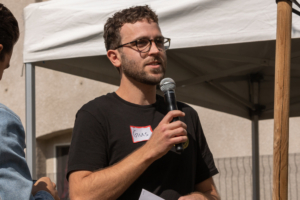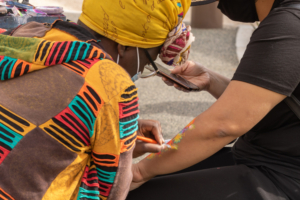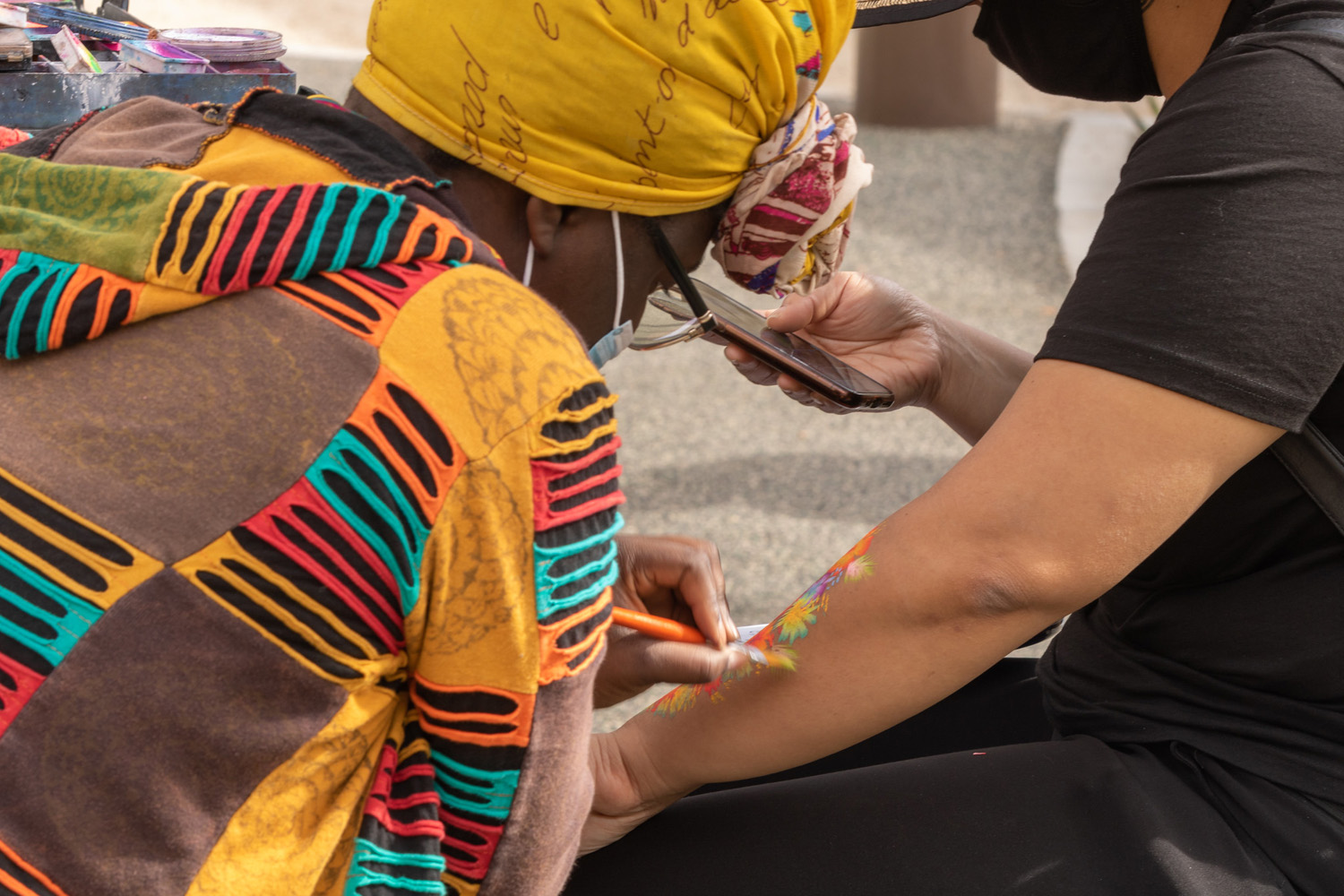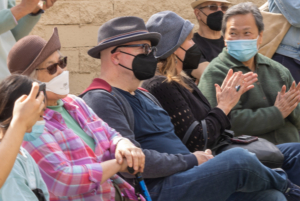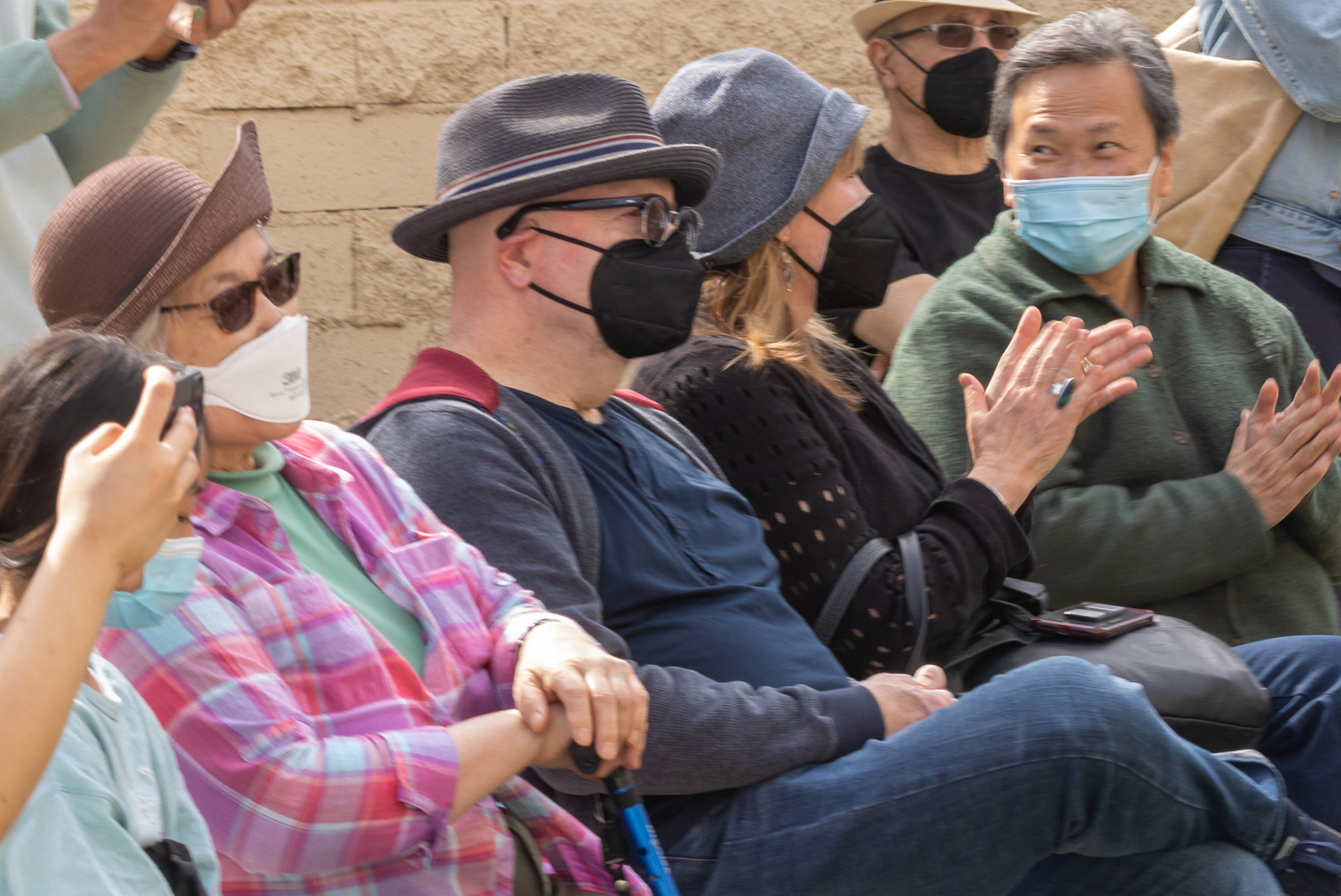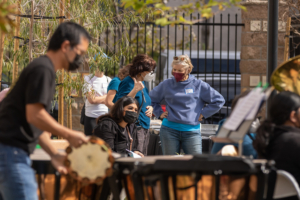UCLA Luskin Students Host First In-Person Event at Golden Age Park
Students affiliated with the UCLA (Un)Common Public Space group hosted more than 100 attendees on Feb. 26 to celebrate Golden Age Park, a pocket park in the Westlake neighborhood of Los Angeles that incorporates ideas championed by Urban Planning Professor Anastasia Loukaitou-Sideris. The Saturday afternoon event included food, games and music provided by 45 members of the Heart of Los Angeles’ Intergenerational Orchestra. Five members of a Shakespeare troupe also performed an excerpt from “A Midsummer Night’s Dream.” Gus Wendel MURP ’17, a doctoral student in urban planning at UCLA, said the (Un)Common Public Space group was formed in 2021 as a collective of community members, students, researchers, performers and public space activists with the goal of activating public spaces in different neighborhoods using research, performance and community-based events. Usage of Golden Age Park, which opened in 2019, had been hindered by its relative newness and by the COVID-19 pandemic. A primary purpose of the event was to build local awareness of the park’s presence and to promote its intergenerational appeal. “By creating opportunities for people of all ages to share time, space and experiences, intergenerational public spaces support engagement, learning and understanding across generations,” Wendel said. In addition to students in UCLA Luskin’s urban planning program, organizers and supporters included the UCLA Lewis Center for Regional Policy Studies, UCLA cityLAB, the Heart of Los Angeles (HOLA), the Los Angeles Neighborhood Land Trust (LANLT) and St. Barnabas Senior Services (SBSS). The UCLA Urban Humanities Initiative provided additional support, as did the Rosalinde and Arthur Gilbert Foundation.
View additional photos on Flickr:

